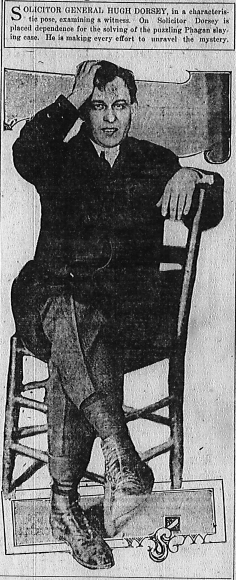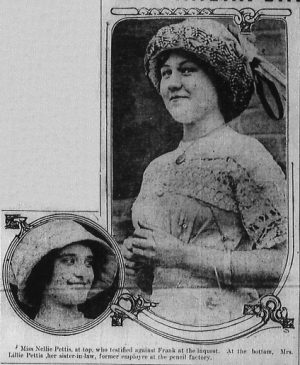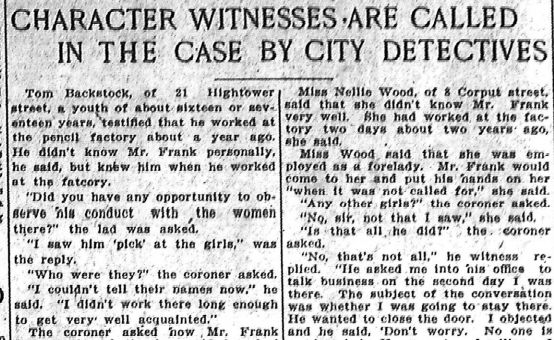Another in our series of new transcriptions of contemporary articles on the Leo Frank case.
Atlanta Constitution
Wednesday, August 20th, 1913
Miss Nellie Wood, a former employee of the National Pencil factory, whom the state claims left there because on the second day she was there when Leo Frank got her into his office and made indecent proposals to her, was put on the stand following the McKnight negro.
After bitter wrangles with the jury out of the courtroom, Judge Roan ruled that the woman could not tell that Frank had made these proposals to her, but that all she could tell about was what she had heard others say in regard to his character before the day of the murder. It was a severe blow to the state and only came after Solicitor Dorsey and Attorney Hooper bad Invoked every point they knew to fight HH. Mr. Dorsey declared that the court had allowed the defense to ask the factory girls If Frank had ever on any occasion made Improper proposals to them and that now he refused to let the state ask the same question of the witness on the stand.
Continue Reading →



